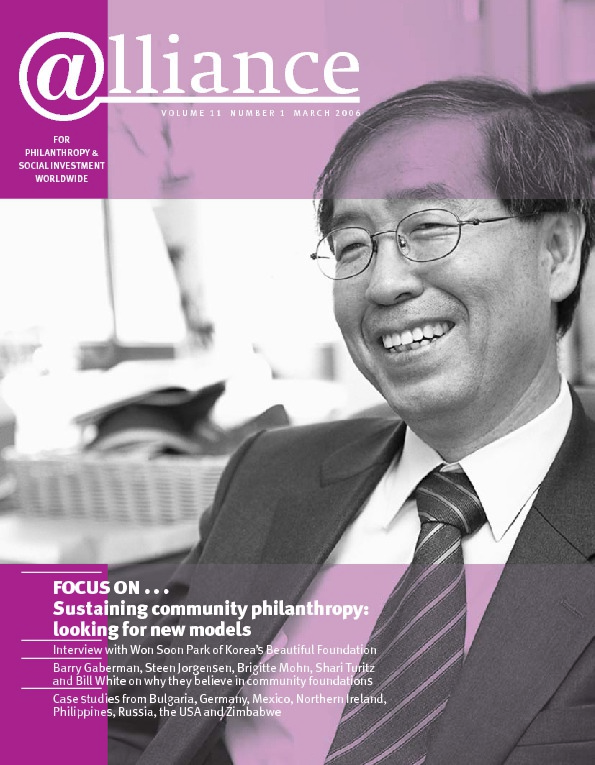Founded in 1996 with a donation from the media entrepreneur Reinhard Mohn and the Bertelsmann Corporation, Stadt Stiftung Gütersloh was the first community foundation in Germany based on the US model. Underlying its establishment was the view that the German welfare state could no longer be financed in the traditional way and that citizens should become more responsible for their communities.
The community foundation seeks to engage citizens and stimulate social innovations both by supporting non-profit and charitable projects and by carrying out its own very wide range of projects.
Income and resources
The foundation has increased its assets, from the initial endowment of €1 million to €3.1 million. Virtually all its assets are endowed, with 65 per cent of the endowment being unrestricted. The remainder includes two trustee-based funds which total €1 million. The unrestricted portion generates an investment return of €100,000. In addition, the foundation receives income from a raffle and from flow-through money. Of the flow-through money (€128,000), 55 per cent comes from membership contributions – another indication of the foundation’s sustainability.
Also crucial to its long-term asset development strategy and sustainability is the fact that 85 per cent of its donors are local individuals. If this donor-foundation relationship develops, there is the possibility of these donors becoming regular donors, making increasing gifts over time and even considering the idea of legacy gifts to the foundation. This is an idea that the foundation has marketed since its establishment; it is currently in line for four legacy gifts, which at the moment would be worth over €1 million in total. These gifts will become part of the permanent endowment.[1]
Keeping costs low
It is extremely important for the reputation and survival of the foundation to keep management and administrative costs modest. In its early years, the overall management – including administration, accounting, investment, fundraising, grant and project administration – was done by volunteers and one staff member. Now the work is mostly done by two staff members and a volunteer director. A volunteer board member deals with the investment management and external experts are brought in if needed. Even if the volunteers ceased to be available, the foundation would have sufficient income for management expenses.
We realize that sustainability is not merely a matter of finances. It also depends on mission, professional management, transparency and programme activities. But after nearly ten years of existence, the Stadt Stiftung Gütersloh can claim to be sustainable in financial terms, since it has sufficient resources from its endowment and other secure sources to sustain its operating costs and its grantmaking.
1 The foundation is aware that legacy gifts can always be changed during the donor’s lifetime, and so does not include them in its current assets.
Nina Spallek is Deputy Managing Director of Stadt Stiftung Gütersloh. She can be contacted at nina.spallek@stadtstiftung.de
See http://www.stadtstiftung.de





Comments (0)